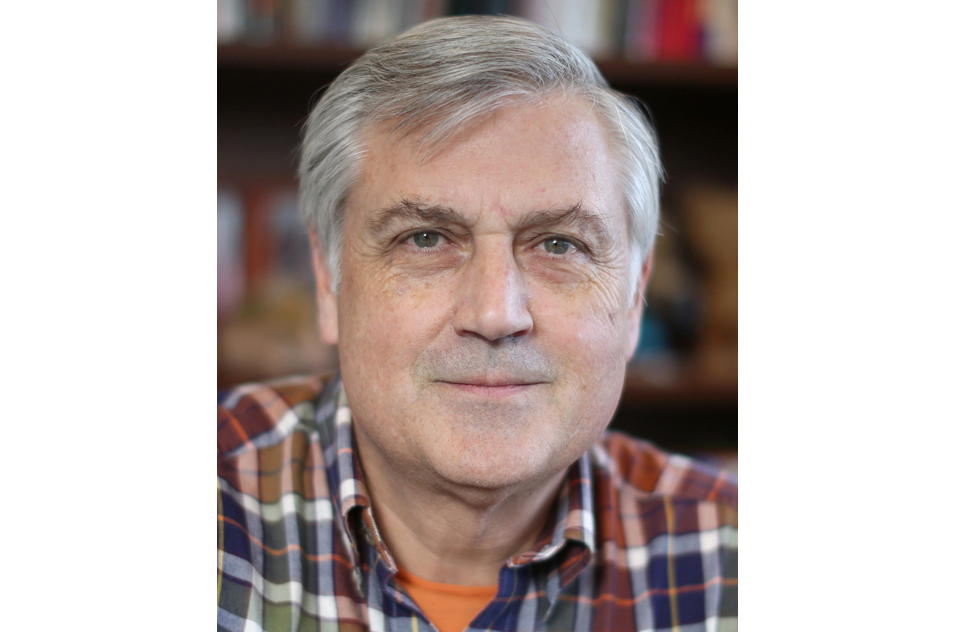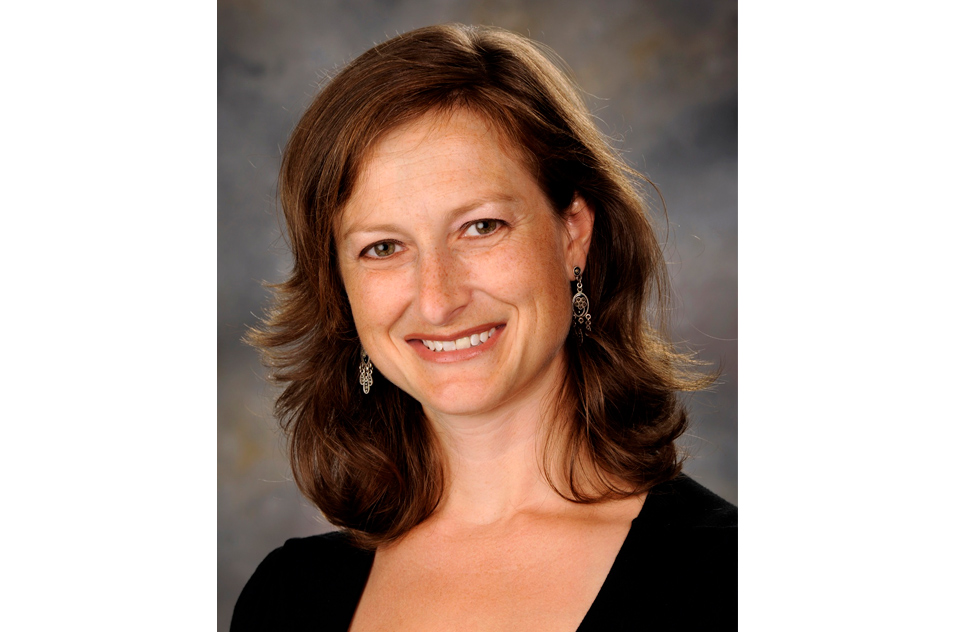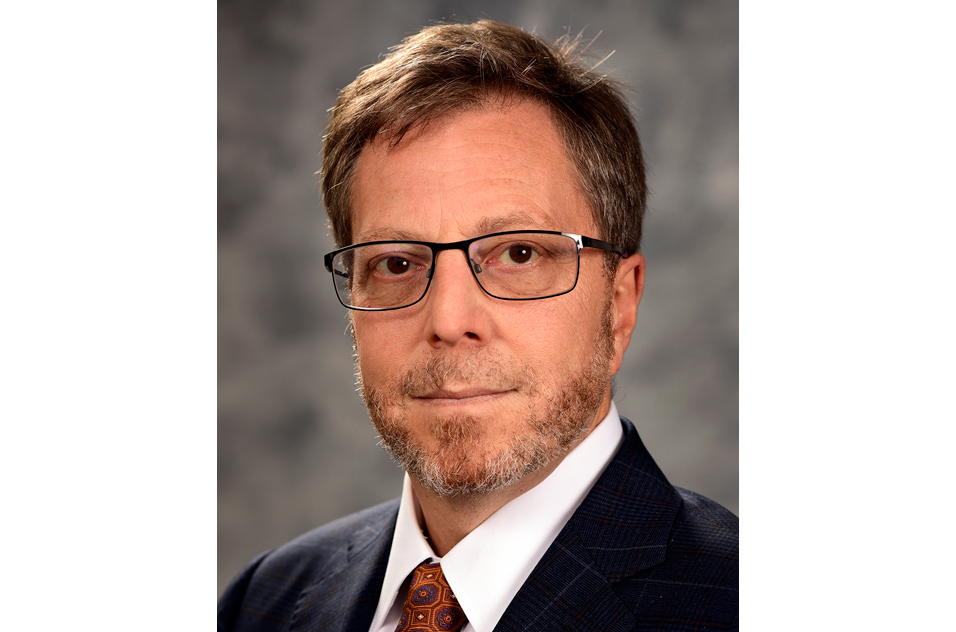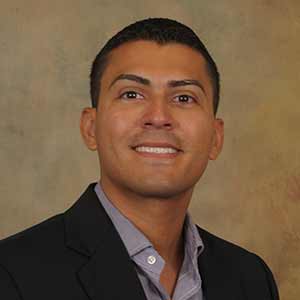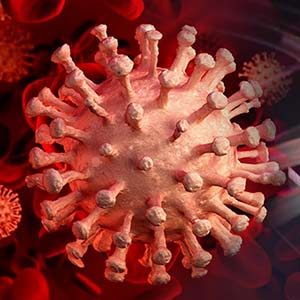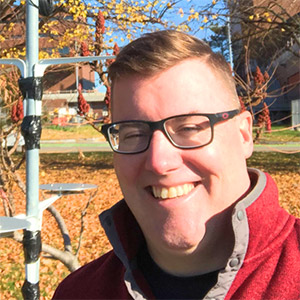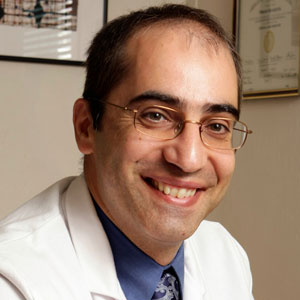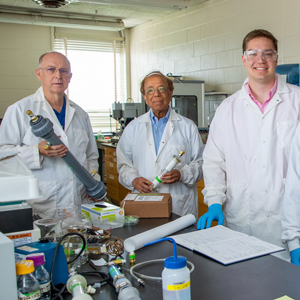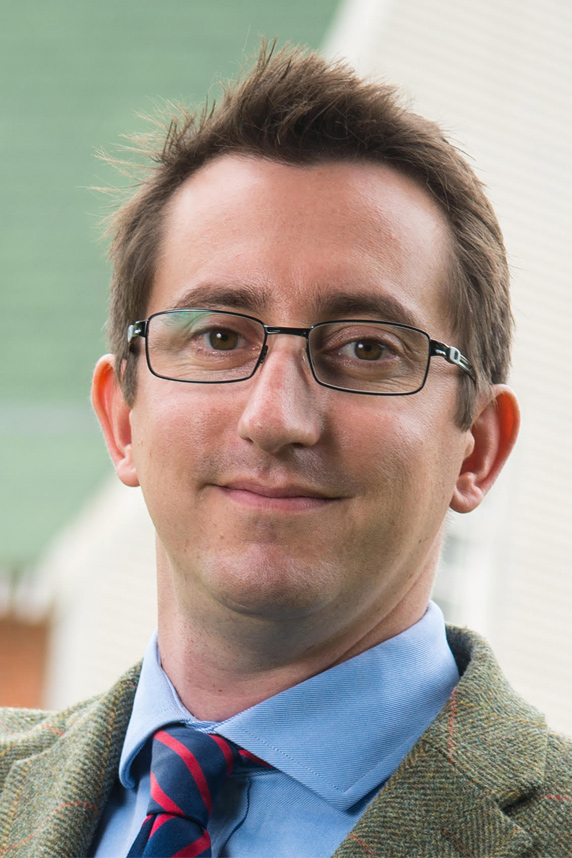 “COVID-19 is accelerating the recognition of racism as a public health issue, and the need to decolonize global health,” Stringer said. (Photo courtesy of Andy Stringer)
“COVID-19 is accelerating the recognition of racism as a public health issue, and the need to decolonize global health,” Stringer said. (Photo courtesy of Andy Stringer)Some 320 attendees and 75 speakers from around the world took part in the 2020 Triangle Global Health Consortium (TGHC) virtual conference. The theme of the Dec. 3 event was “Global Health in a COVID-19 Era: Leadership in Action.” NIEHS is a major supporter of the consortium, which is based in the Research Triangle area of North Carolina.
“It’s great to see how much inspirational global health work is happening right here in North Carolina,” said TGHC Acting Executive Director Andy Stringer, Ph.D.
“This first-ever virtual event was second only to last year’s in attendance,” said Trisha Castranio, NIEHS liaison to TGHC and board member. “That shows a great deal of interest in global health research and activities here. NIEHS is proud to support and be a part of such a successful organization.”
Heather Henry, Ph.D., from the NIEHS Superfund Research Program (SRP), helped organize the meeting as a member of the planning committee.
Rwanda builds on Ebola experience
In her keynote address, Agnes Binagwaho, M.D., Ph.D., a former Rwanda minister of health, described her country’s success fighting COVID-19. “We’d had three Ebola alerts, so we didn’t have to invent anything,” she said.
Rwanda, a country of 12 million people, has a robust testing program that identified just 6,000 cases of COVID-19 and 50 deaths.
Fighting a disease that spreads easily and indiscriminately requires equal access to care, Binagwaho said. “But you cannot build an equitable, resilient health system during a crisis,” she said. “Preparation is key.”
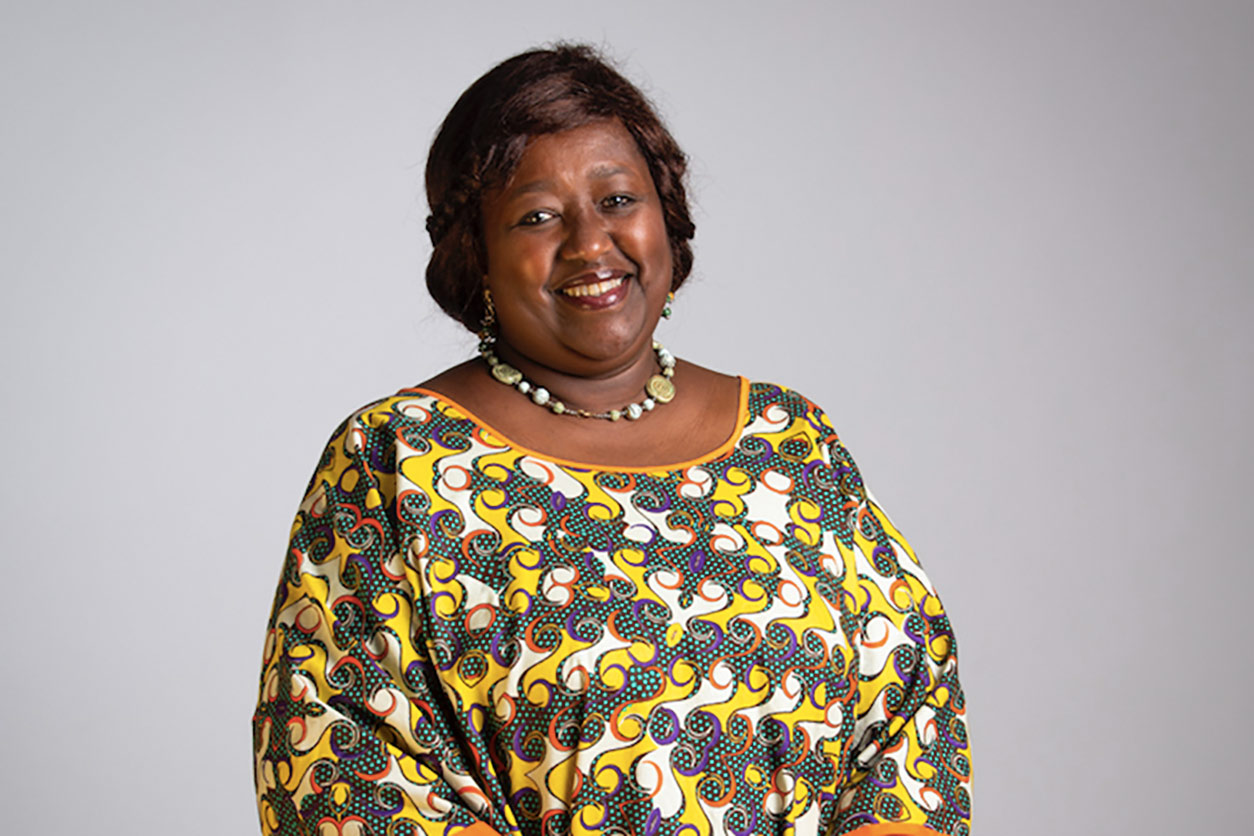 “The predictions that the U.S. was ready for a pandemic and Africa was not were wrong. It’s a colonial mindset.” (Photo courtesy of Agnes Binagwaho)
“The predictions that the U.S. was ready for a pandemic and Africa was not were wrong. It’s a colonial mindset.” (Photo courtesy of Agnes Binagwaho)
Official summarizes state approach
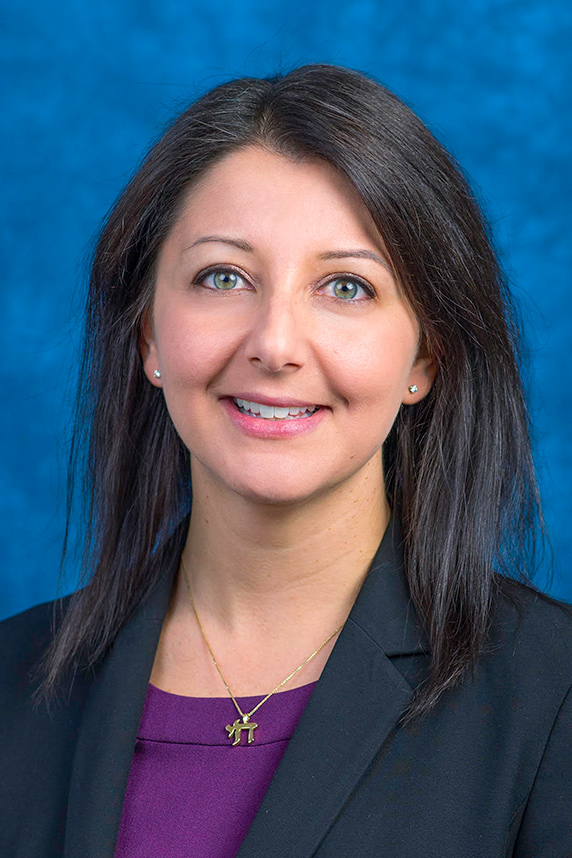 “In North Carolina, hospital resource availability is less about space and more about personnel. Everyone is tired,” Cohen said. (Photo courtesy of Mandy Cohen)
“In North Carolina, hospital resource availability is less about space and more about personnel. Everyone is tired,” Cohen said. (Photo courtesy of Mandy Cohen)North Carolina Department of Health and Human Services Secretary Mandy Cohen, M.D., described the state’s COVID-19 efforts during her keynote address. “We have used a health equity lens at every point in our COVID response, so we can appropriately respond to COVID in historically marginalized communities,” she said.
Cohen sees hope in the new vaccines, although she is concerned about building trust with the public. “Dr. (Anthony) Fauci has said repeatedly that just because development was fast does not mean that corners were cut. Fast means there has been a coordinated effort.” Fauci directs the National Institute of Allergy and Infectious Diseases.
Ready for research after disaster
NIEHS Senior Medical Adviser Aubrey Miller, M.D., moderated a panel on the National Institutes of Health (NIH) Disaster Research Response (DR2) program. DR2 provides some 425 disaster research tools and resources to increase the speed and quality of epidemiology and clinical research in the wake of natural or human-caused disasters.
NIEHS epidemiologist Richard Kwok, Ph.D., also spoke about the program. “There was a lack of ready-to-go tools and ethical protocols for studying disasters,” Kwok explained. “Delay can mean exposures or accurate outcomes might be missed.”
Testing the vulnerable
NIEHS Acting Deputy Director Gwen Collman, Ph.D., followed with an overview of the Rapid Acceleration of Diagnostics (RADx) program, an NIH effort to ramp up COVID-19 testing for underserved and vulnerable populations.
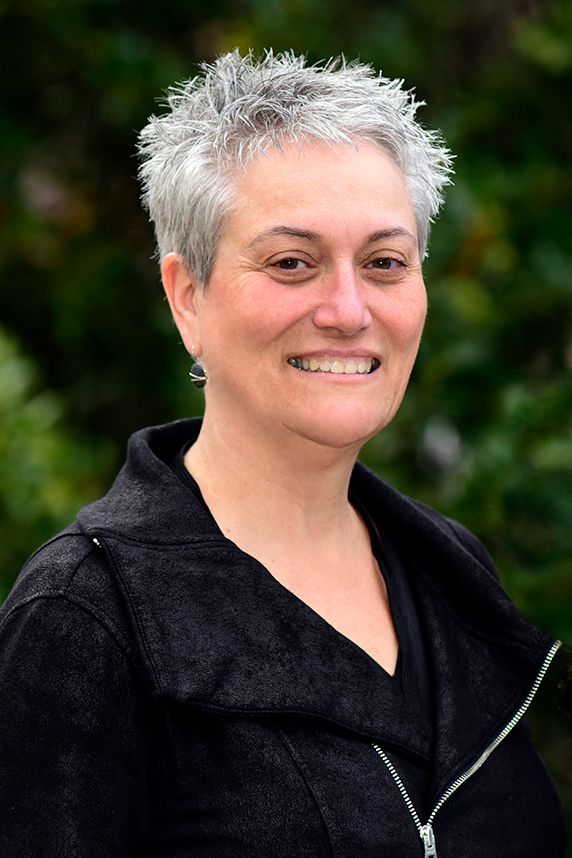 “RADx Tech uses a Shark Tank approach, where ideas are submitted to a group of reviewers who decide if their technology is worth investing in.” (Photo courtesy of Steve McCaw / NIEHS)
“RADx Tech uses a Shark Tank approach, where ideas are submitted to a group of reviewers who decide if their technology is worth investing in.” (Photo courtesy of Steve McCaw / NIEHS)“Communities of color, underrepresented minority groups, and health disparity populations have been hit very hard, with a high number of cases and greater risk for negative outcomes,” she said.
Contaminants and the immune system
In addition to helping plan the meeting, Henry gave a discussion of chemical contaminants at Superfund sites that affect the human immune system. “Immunosuppressants interact with and [worsen] susceptibility to SARS-CoV-2 and affect our ability to respond to vaccines,” she said.
SRP is working with RADx on wastewater testing, disease mapping, and new screening technologies.
COVID should not have surprised us
In his closing talk, Jonathan Quick, M.D., from The Rockefeller Foundation, said the world reacted slowly to Ebola in 2014, then descended into complacency.
“We need early outbreak detection and quick response,” he said. “We can’t continue this cycle of panic and neglect, because we’re no less likely to discover another coronavirus today than we were a year ago. We need house-on-fire leadership.”
(John Yewell is a contract writer for the NIEHS Office of Communications and Public Liaison.)





